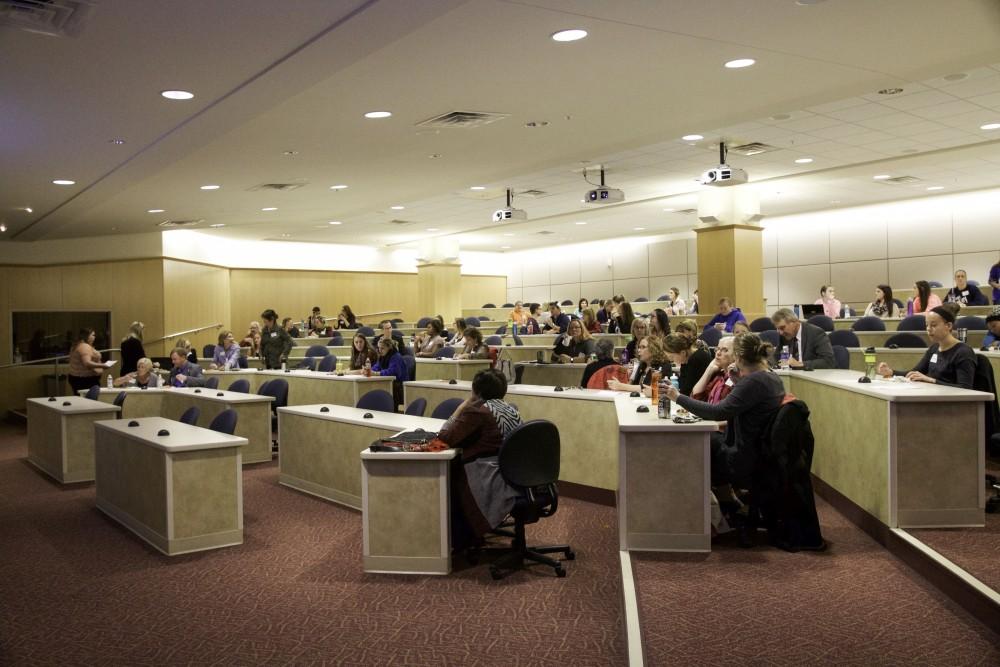Documentary highlights the struggles of dealing with trauma

GVL / Sara Carte Grand Valley students and staff wait for the documentary film screening of “Paper Tigers” in the Cook-DeVos Center for Health Sciences downtown Grand Rapids on Nov. 16.
Nov 19, 2015
Cutouts of paper tigers, unlike real tigers, pose no danger to the average student. But, the facade of a real threat that may be unassuming to some could actually cause stress in others’ lives. It is this notion of the different reactions to stressors that led into the idea behind a documentary named “Paper Tigers.”
Grand Valley State University held a free screening of the new film for students on Monday. The documentary, directed by James Redford, delves into trauma-informed education and the Adverse Childhood Experience (ACE) study.
ACEs are traumatic events that happen in childhood or adolescence that have lasting negative effects on both physical and mental health, said Joel Stillerman, GVSU sociology professor.
“The study found that people who have suffered from abuse (in a variety of ways) are much more likely to have chronic physical and mental health conditions,” Stillerman said.
The title of the movie, “Paper Tigers,” is a metaphor for the struggles students with ACEs are facing.
“The idea is that students would respond to a paper tiger the same way they would to a real tiger because they are so wired to protect themselves from more stress in their lives, even if it was a paper tiger, they would react as if they were in real danger,” said Ruth Stegeman, GVSU’s director for community engagement. “That struck me.”
The film follows students at Lincoln High School, an alternative high school in Walla Walla, Washington, for a year. Many of the students at the school struggle with ACEs. The film follows Lincoln’s staff as they try a different approach to how they discipline students. The new approach is based in understanding and treatment, rather than traditional punishment with detention or suspension.
“It’s a school with low-income students who have experienced these kinds of trauma. (They) weren’t doing well in school,” Stillerman said. “They were having a lot of problems with grades, with attendance and with delinquency, so (the faculty) took some of the findings from this study and they changed the way they discipline the students in ways that addresses these issues of trauma and deprivation, and they had phenomenal results.”
Stegeman said all students — regardless of their major — can learn from this film.
“So many of our departments on campus are preparing our students for careers working with children, teenagers and adults who very likely will have adverse childhood experiences,” Stegeman said. “There are so many careers in which our graduates will be exposed to situations where they’re going to have to figure out how to work with people who have dealt with these kinds of experiences.”
Stegeman said having the documentary screening is important because it could open up community members’ eyes. People who see the documentary may be able to then better understand the challenges others may face.
“We are moving towards being a much more civically engaged university, and for us that means being knowledgeable and being aware of community challenges,” Stegeman said. “The more we can do to understand those challenges and work collaboratively with our community as partners, the better off our community will be and the better off we will be as well.”
For more information about the film, visit www.papertigersmovie.com.






















